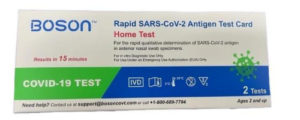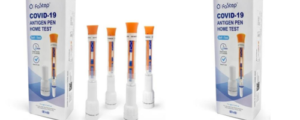Table of Contents
Recent survey results show an increasing trend in the percentage of teens using cough medicine containing Dextromethorphan (DXM) to get high. In 2020, 3.7 percent of teens used over-the-counter cough medicine with DXM. This figure represents an increase of 2.8 percent in 2019. The same survey reports that the eighth graders’ use of cough medicine with DXM has consistently increased over the past five years, from 2.6% in 2016 to 4.6% in 2020. The question is – how long does Dextromethorphan stay in your system?
But before we dive deeper, let’s first understand what Dextromethorphan (DXM) is, the medications that contain this drug, and other important information.
What is Dextromethorphan?
Dextromethorphan (DXM) is the active ingredient found in medicines classified as a cough suppressant. It temporarily relieves a cough caused by the common cold, flu, bronchitis, allergies, and other lung disorders. However, it does not treat the cause of the cough or speed recovery.
Sold over-the-counter, DXM comes in over 100 products such as syrup, tablets, capsules, sprays, lozenge, and even dissolvable strips placed under the tongue. Besides, anyone can purchase DXM products and powder on the internet.
DXM is a popular drug of abuse among teenagers because it is accessible and does not raise suspicion.
Slang terms for DXM include:
-
- Black beauties
- Brownies
- Dex or Drex
- Dextro
- Drix
- Gel
- Groove
- Lean
- Mega-perls
- Orange crush
- Poor man’s Ecstasy, Poor man’s PCP, or Poor man’s X
- Red devils
- Red hots
- Robo
- Rojo
- Rome
- Skittles
- Sizzurp or syrup
- Sky
- Triple C’s or CCCs
- Tussin
- Velvet
- Vitamin D
DXM is not a scheduled drug under the Controlled Substances Act. However, the United States Drug Enforcement Administration (DEA) lists DXM as “a drug of concern” because of high dextromethorphan dependence and abuse rates.
Data from the Substance Abuse and Mental Health Services Administration (SAMHSA) and the National Institute on Drug Abuse (NIDA) indicate that the abuse of DXM typically occurs in young females under the age of 18 and males between the ages of 18 and 26 years old.
DXM may be swallowed in its original form or possibly mixed with soda for flavor, called “robo-tripping” or “skittling.” In other instances, those with substance disorder inject or use it combined with other drugs, such as alcohol and marijuana.
Is Dextromethorphan addictive?
Misuse of DXM in high doses can lead to various effects and dangers. When consumed in excessive amounts, DXM can produce intoxicating effects similar to marijuana, ketamine, or PCP, including euphoria and hallucinations. However, combining DXM with other drugs or alcohol, especially selective serotonin reuptake inhibitors (SSRI) antidepressants, can increase the risk of serotonin syndrome, a potentially life-threatening condition.
Additionally, DXM misuse in medications containing other active ingredients can cause health complications. Pseudoephedrine, found in some medications, can lead to high blood pressure, while acetaminophen can cause liver damage. Antihistamines present in certain formulations may result in central nervous system toxicity and heart damage.
Medications containing Dextromethorphan
Among the popular formulations with DXM as an ingredient include:
-
- Coricidin
- DayQuil
- Dimetapp DM
- NyQuil
- Robitussin DM
- Vicks Formula 44
- Robitussin CF
- Robitussin Cough and Cold
- Mucinex DM
- Store brands for cough and cold medicines
How is Dextromethorphan usually taken?
Dextromethorphan comes as a liquid-filled capsule, a chewable tablet, a dissolving strip, a solution (liquid), an extended-release (long-acting) suspension (liquid), and a lozenge. Also, it is usually taken every 4 to 12 hours as needed. The typical adult dose for cough is 15 to 30 mg taken three to four times daily. The cough suppressing effects of DXM persist for 5 to 6 hours after ingestion.
What are the signs of Dextromethorphan withdrawal?
Listed below are the common withdrawal symptoms when one stops taking the drug.
-
- Bone or muscle aches.
- Cold flashes
- Craving for Dextromethorphan
- Diarrhea
- Insomnia
- Restlessness
- A significant amount of weight loss
- Vomiting
How long does Dextromethorphan stay in your system?
Dextromethorphan usually remains in the body within one to two days after your last dose. However, severe intoxication or chronic use of DXM will result in a longer elimination time.
Likewise, those with low CYP2D6 metabolism may take 4 to 5 days to eliminate DXM from their system. CYP2D6 is an enzyme that is involved in the metabolism of numerous drugs
Factors that affect how long does Dextromethorphan stay in your system
-
- User’s age. As a person ages, metabolism slows down, so DXM may remain active in the bloodstream longer in older individuals.
- Gender. Males metabolize drugs faster than females.
- Body mass. A lean individual with more muscle than fat may burn off DXM more quickly than someone with a higher fat percentage.
- Genetics. Slow metabolizers have completely inactive genes that control metabolism.
- Hepatic function. Anyone with an impaired liver will likely retain longer DXBM in his body.
- Metabolic rate. A person with a higher Basal Metabolic rate (BMR) is likely to metabolize and excrete faster DXM drugs.
- Renal function. Anyone with poor renal function is likely to retain DXM metabolites slightly longer than if his kidneys were healthy.
- Dosage. Those who take DXBM more than the recommended dosage will eliminate the drug longer.
- Co-administered drugs. Medications classified as “CYP2D6 inhibitors” interfere with CYP2D6 isoenzyme function. These drugs include Bupropion, Cinacalcet, Fluoxetine, Paroxetine, Quinidine, and Ritonavir. Meanwhile, if you’ve taken a drug classified as a “CYP2D6 inducer,” this drug may have strengthened your CYP2D6 isoenzyme function. Examples include Dexamethasone, Glutethimide, and Rifampicin.

What type of drug test can detect Dextromethorphan?
Dextromethorphan is not detected on a standard 12 Panel urine drug test since it is not a controlled substance.
Nevertheless, the DEA says that DXM may show up as PCP on most standard drug tests. According to the Drug and Alcohol Testing Industry Association (DATIA), a drug test can detect PCP for up to a week. Our 12 Panel urine drug test can detect PCP.
Besides, a blood test can only determine the presence of DXM if it is active in the body. Hence, it will only show a positive result up to 24 hours after taking the drug.
As it generally takes 24-72 hours for Dextromethorphan to leave the system, many are still concerned whether or not they will pass a drug screening if they have consumed the drug recently. Does Dextromethorphan show up on a standard drug test?
Generally speaking, Dextromethorphan is not one of the drugs detected on a standard 12 Panel urine drug test. A 12 Panel Urine Drug Testing cup detects several kinds of drugs. This is one of the most popular Drug Testing Kits available as it detects up to 12 different substances. These include:
| Amphetamine Barbiturates Benzodiazepines Buprenorphine |
Cocaine Ecstasy Marijuana Methadone |
Opiates/Morphine Oxycodone Methamphetamine Tricyclic Antidepressants |
Some Urine Drug tests like the 12 Panel Urine drug tests detect PCP as well. You can find this on the listing for 12 Panel Urine Drug Test + PCP on 12 Panel Now’s site listing. Why is this important?
Though no studies have performed, some individuals have reported having taken Dextromethorphan and submitted a drug screen soon thereafter. Though it’s anecdotal, some have seen false positives for Opiates as well as for PCP.
Getting Help for Dextromethorphan Addiction
Whether your questions about how long does Dextromethorphan stay in your system relates to Dextromethorphan withdrawal, a drug test, or perhaps a combination of factors, it can linger for a long time in your body.
If you’re struggling with Dextromethorphan problems and need the instant drug test kit, contact 12 Panel Now by calling 561-409-5151 to learn more about drug testing services.





























